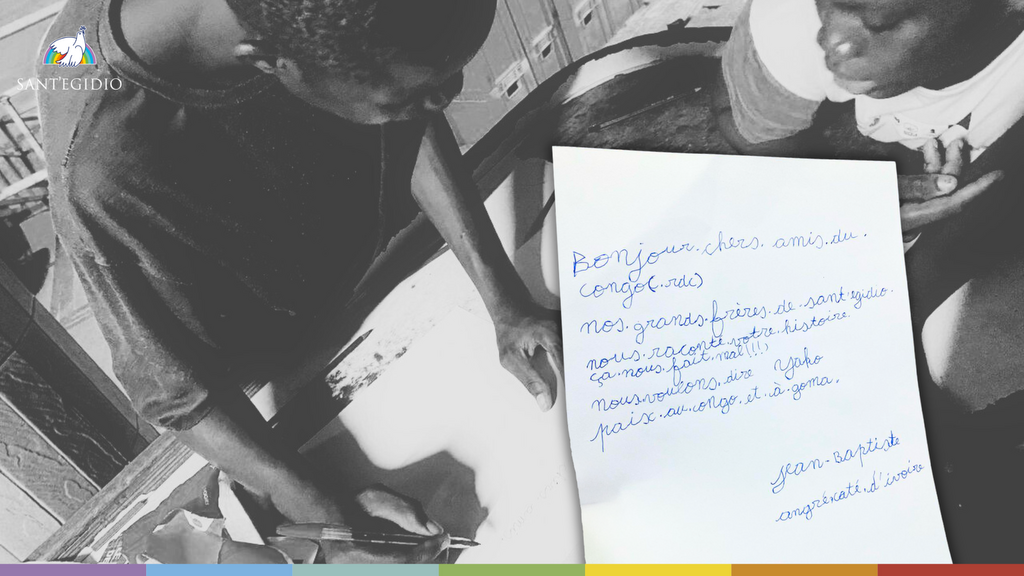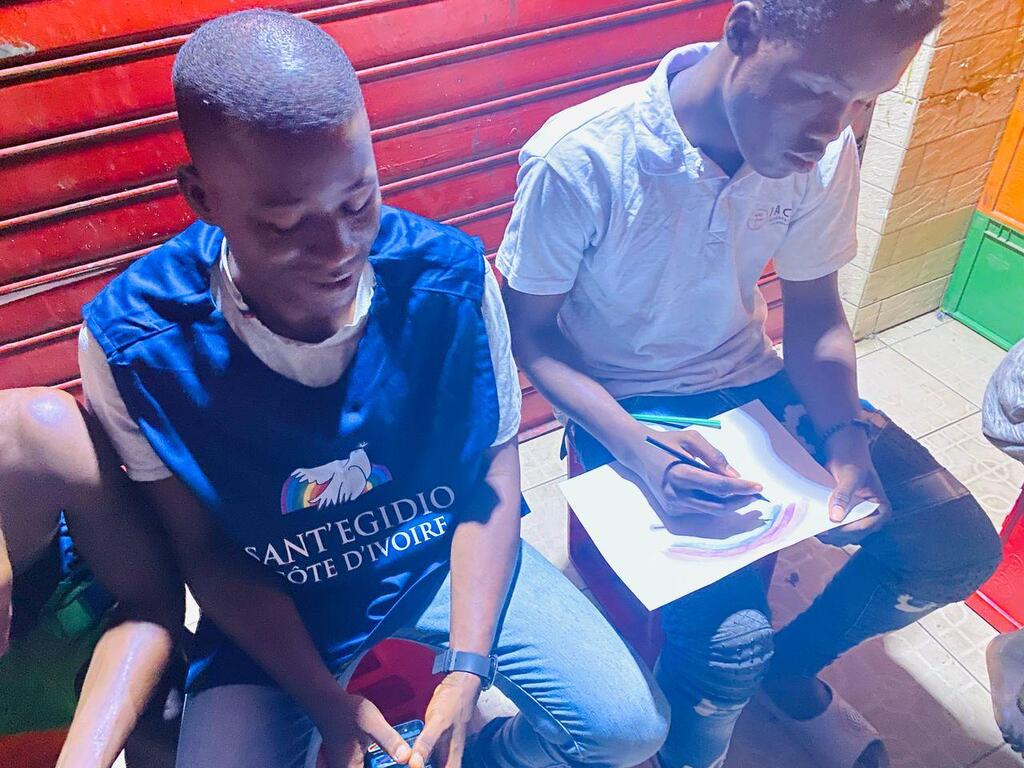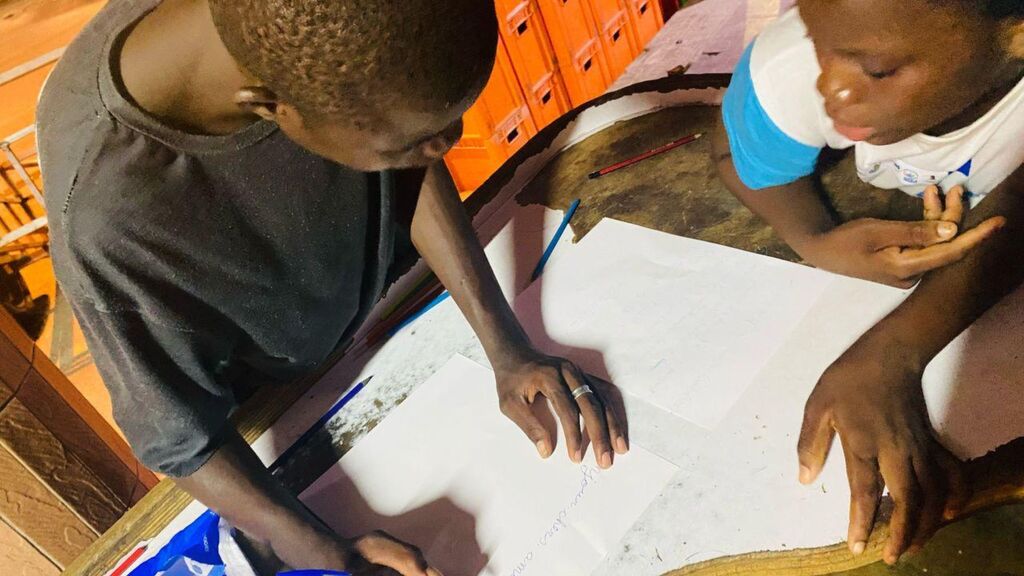The city of Abidjan, in Ivory Coast, is marked by great inequality, with a massive presence of street children: approximately 15,000 in 2021. The School of Peace is dedicated to all of them, offers educational support and food, and teaches a culture of fraternity. These children, considered outcasts by the society around them, learn from the Community to care for those who are poorer than them and to build bridges of solidarity. Inspired by reports of violence in eastern Congo, they recently decided to dedicate their drawings to their Congolese peers in Goma, who have been in the midst of a humanitarian crisis for months, and to send them as a sign of closeness and friendship.
The tragedies in North Kivu were also remembered by the children of the Katwe School of Peace in Uganda, who began the school year by commemorating Floribert, who gave his life to fight corruption and protect the children of Goma – his children – from spoiled food.
The Schools of Peace support children and young people living in difficult situations, especially in the suburbs of cities around the world. The young people who run them offer schoolwork assistance and an educational model open to all, against all forms of discrimination and in favour of the most disadvantaged. This is particularly significant in Africa, the continent with the highest percentage of young people, where illiteracy, school dropout and malnutrition rates are also the highest. Children and young people are often forced to live on the streets or start working at an early age and, in the worst cases, can end up in criminal circles. Others attempt journey to Europe, alone or with their parents, risking their lives and sometimes perishing.
The Schools of Peace in Africa are trying to fight this by helping young people and kids study, encouraging socialisation, and fighting poverty and school dropping out. In the schools in Katwe, Uganda, and Yaoundè, Cameroon, school kits have recently been handed out, so kids from families in tough situations could go to school like everyone else. In an often violent environment, children understand the importance of living in harmony, as demonstrated by the book ‘Let's Make Peace?!’, which collects the experiences of children in war through drawings and short messages. These messages reveal the children's desire and request to ‘make peace’, not just for themselves, but for all children suffering around the world: a sign of solidarity and empathy towards others.
















